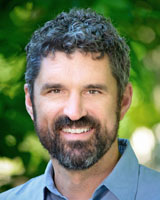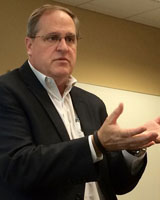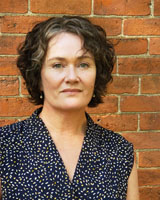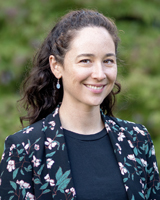Friday, April 30th, 2021
10:00am – 11:30am
Overview of the short-term and long-term changes in the Great Lakes water level variability, including pathways through which climate change impacts the major components of the Great Lakes water balance. Outlining a long-term conservation-based public policy argument for certain and specified uses of Great Lakes water during periods of high water levels in the Great Lakes.
Panelists

Drew Gronewold
Associate Professor, UM School for Environment and Sustainability
Dr. Andrew Gronewold, P.E., is an Associate Professor with the School for Environment and Sustainability (SEAS) at the University of Michigan. He also holds adjunct faculty appointments in the University of Michigan’s Department of Civil and Environmental Engineering, and the Department of Earth and Environmental Sciences. Dr. Gronewold conducts research through a range of hydrological science projects that explore methods for quantifying and communicating uncertainties arising within long-term hydrological monitoring networks and data, and incorporating those uncertainties into models and risk-based water resources management decisions. Much of his recent research has focused on monitoring, analyzing, and forecasting the long-term water budget and water levels of the Laurentian Great Lakes.
Dr. Gronewold completed his undergraduate research at Cornell University in Civil and Environmental Engineering, and he conducted his graduate research at Duke University’s Nicholas School of the Environment with Drs. Ken Reckhow and Robert Wolpert. Prior to joining the University of Michigan, Dr. Gronewold was the lead hydrologist at the National Oceanic and Atmospheric Administration (NOAA) Great Lakes Environmental Research Laboratory, where his team advanced research on the Great Lakes hydrologic cycle and on historical and future water levels. In addition to his research career and academic training, Dr. Gronewold spent several years in the environmental consulting field as a professionally licensed engineer. For his contributions to hydrologic science, Dr. Gronewold received the NOAA Bronze Medal (in both 2016 and 2019), the highest honor bestowed by the Under Secretary of Commerce for Oceans and Atmosphere. Dr. Gronewold was also honored as a Department of Commerce Sustainability, Energy, and Environment Ambassador, specifically for his innovative solutions to regional water resources management problems.
 Jon Allan
Jon Allan
Academic and Research Program Officer Sr., UM School for Environment and Sustainability (SEAS) and former Director of the Michigan’s Office of the Great Lakes
Jon W. Allan joined the School for Environment and Sustainability at the University of Michigan in the fall of 2019. His work focuses on the enterprise of sustainability across Michigan and the Great Lakes region related to the intersection of ecological, economic, social and cultural value. He seeks to understand and influence the rate at which the region is adopting and implementing the principles of a sustainable and just society.
Jon was previously the President and Founder of the Jon W. Allan Group, a private consultancy specializing in strategic insight for freshwater and the Great Lakes, energy and environmental policy and natural resource governance..
What is the Wolverine Caucus?
Wolverine Caucus members are University of Michigan alumni including legislators, lobbyists, staff, and advisors working in and around State of Michigan government. They meet with U-M experts on timely, relevant public policy subjects during the legislative session. Our mission is to provide diverse forums at which U-M friends can meet one another, enjoy fellowship, exchange views and learn from the world- class talents of U-M faculty and administrators.


 Maria Muzik MD, MSc
Maria Muzik MD, MSc Amy Zaagman
Amy Zaagman Lynette Beiry
Lynette Beiry

